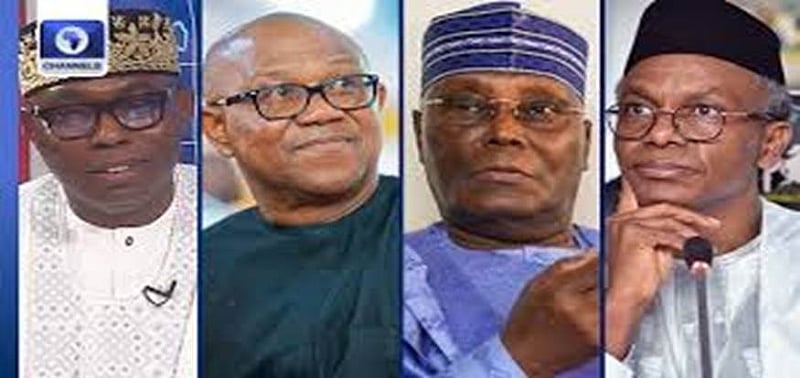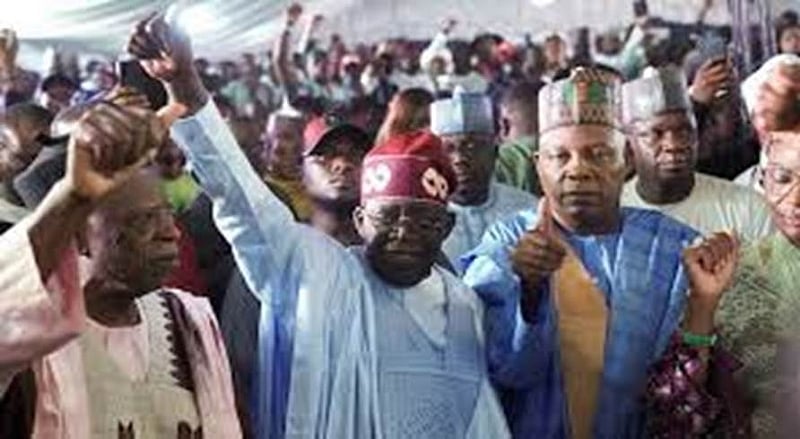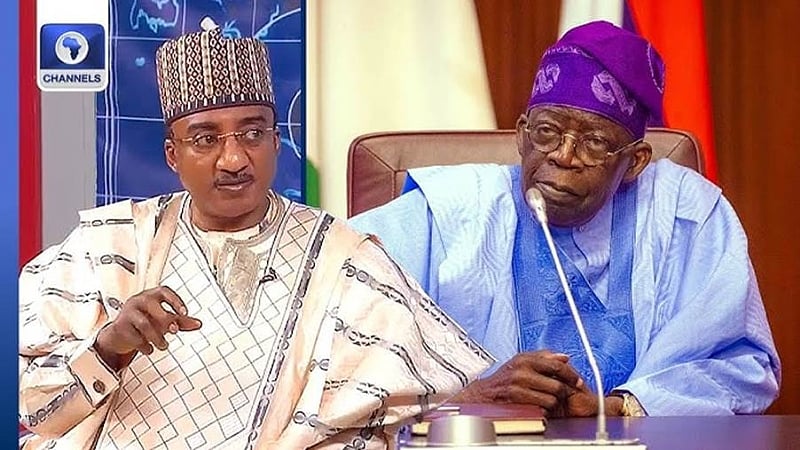Nigeria stands at the threshold of another electoral season, and as usual, the tension between governance and politicking is beginning once again to take centre stage. In what many analysts have described as a classic display of democratic irony, humungous sums of money are being spent by government, purportedly to strengthen security and infrastructure, yet the lived realities of Nigerians tell a different story altogether. From March 2024 to May 2025 alone, a staggering N1.6 trillion was disbursed to state governments and the Federal Capital Territory. The financial move was framed as a bold step toward addressing the country’s pressing issues. But beyond the spreadsheets and official statements, what really happened to those funds? Did they translate into safer roads, more stable electricity, affordable healthcare, or more secure communities? The answers, unfortunately, remain elusive, as the average Nigerian has still been left to struggle with daily hardships that speak of a deeper problem with the system.
At its core, this dilemma epitomises a national tragedy which struck in the wake of the prioritization of electoral ambitions of Nigerian politicians over the fundamental needs of their people. And as 2027 approaches, the question every Nigerian must ask is: when will we finally say enough is enough?
For decades, Nigeria has been gripped by a vicious cycle that welcomes political actors treating public resources as party campaign war-chests rather than tools for national development. The recent N1.6 trillion allocated to states in tranches highlights this paradox perfectly. Publicly advertised as a lifeline to states struggling with security and infrastructural decay, these funds should have served as a turning point. On the contrary, many citizens report that there have been no tangible improvements. Pothole-ridden roads, inadequate health facilities, dilapidated schools, and chronic insecurity still define their existence.
How did we get here? The answer lies in a combination of institutional weakness, entrenched official corruption and a populace that has, over time, grown both resilient and resigned to the whims and caprices of Maradonna politicians. Nigeria’s political class has mastered the art of dribbling the public and using public funds for private gain, especially during election seasons. The 2027 elections are looming large, and political gladiators are already mobilizing resources, not to serve the people but to further secure their grip on power. The word “infrastructure” has become a political buzzword in Nigeria. Leaders sprinkle it into every speech, every campaign promise, every public budget defence. But what do the people actually see? Bridges that collapse before completion, hospitals without drugs, without doctors, without even constant electricity and roads that deteriorate months after they are commissioned.
Despite receiving billions in federal allocations, many states fail to implement meaningful projects. State capitals become showcases of superficial development while rural communities are forgotten completely. Contracts are awarded to cronies at inflated prices, and “ghost projects” proliferate, existing only on paper, but at the same time, enriching those behind them. Nigerians should ask themselves: if N1.6 trillion truly went into infrastructure and security, why do kidnappings, armed robberies, and communal clashes still plague us daily? Why are our roads still more like death traps and our electricity supply still unreliable? Why do mothers still give birth in unsafe conditions, and why do schools lack basic learning materials?
Security remains one of Nigeria’s most critical challenges. From Boko Haram in the northeast to banditry in the northwest, from secessionist agitations in the southeast to farmer-herder clashes in the middle belt, Nigerians are under siege. The recent funding was meant to strengthen state-level security apparatuses, improve intelligence gathering, and ensure rapid response capabilities. But the result has largely been what critics describe as “security theatre.” Armoured vehicles are paraded on ceremonial occasions, more to exhibit a sense of impunity than a sense of sovereignty. Politicians flaunt security convoys that intimidate rather than protect. Communities still remain vulnerable, and local vigilantes, often poorly equipped, become the first and sometimes, only line of defence. If our leaders were truly committed to security, funds would be channelled into modern policing, into community-based conflict resolution mechanisms, into robust welfare for security operatives, and into intelligence infrastructure. But instead, security budgets become avenues for embezzlement, with procurement contracts awarded in secrecy and oversight mechanisms weakened deliberately.
Why is this happening? The simple reason is because of election ambitions. Nigerian politicians often view every major expenditure through the lense of re-election or political survival. Roads are repaired in the months leading up to elections, not as part of sustained planning but as vote-winning stunts. Social programmes are launched temporarily, only to vanish after votes are counted. State governors see federal allocations as spoils to be hoarded and distributed strategically to influential party stakeholders, traditional rulers, and community leaders who can deliver “bloc votes.” The same funds meant for schools, hospitals, and security are instead repackaged as “empowerment programmes” that hand out sewing machines, wheelbarrows, or small cash gifts to desperate youths. This approach reduces governance to transactional politics, eroding the social contract between leaders and citizens. Over time, voters themselves become conditioned to expect crumbs during election periods rather than demand robust, sustainable policies that uplift all citizens.
Of course, Nigeria is paying a heavy price for this blunder called political opportunism. The country has consistently ranked low in global development indices, despite its abundant resources. Poverty levels remain high, with over 133 million Nigerians estimated to live in multidimensional poverty, according to recent National Bureau of Statistics figures. Unemployment and underemployment continue to rise, fueling crime and social unrest. Education suffers immensely. While other countries invest heavily in human capital, Nigeria’s budget for education remains below recommended UNESCO thresholds. Similarly, the health sector, crucial for national productivity and resilience, remains underfunded and mismanaged.

Adebayo, Obi, Abubakar and El Rufai
These failures are not due to a lack of money. At least, the N1.6 trillion is evidence of available resources, but a failure of priorities. When funds are viewed as election tools, national development inevitably stalls. It is not enough to blame the system. Politicians themselves must take responsibility. Nigerian leaders must recognize that true leadership is about service, not self-preservation. There are compelling reasons why they must shun the practice of prioritizing elections over governance. Leaders who focus on real development leave lasting legacies that outlive their tenures. A well-constructed hospital, a functional school, or a secure community speaks louder than any campaign jingle. When governance is made priority agenda, democratic institutions are strengthened. Citizens gain trust in the system and are more likely to participate constructively in civic life.
Again, we all know that it is sustainable infrastructure and security investments that drive economic growth. Jobs are created, businesses thrive, and revenue generation improves. Addressing root causes of insecurity, such as poverty and unemployment, rather than just deploying brute force, leads to lasting peace. Nigeria’s image abroad is tarnished by corruption and financial mismanagement. And so, genuine development will enhance international partnerships and foreign investment as a consequence. And while leaders bear much of the blame, citizens must also share responsibility in what is going on. They must understand that the culture of expecting short-term gains during elections perpetuates bad governance. Voters must realize that selling their votes or accepting temporary handouts undermines their own future and the future of their children.
There are many reasons why Nigerians must reject leaders who prioritize elections over governance. The consequences of mis-governance today will haunt children and grandchildren tomorrow. Investing in credible leadership today secures a better future. Elected officials are public servants, not overlords. Citizens must hold them accountable through active civic engagement, town hall meetings, petitions, and media advocacy. The idea that votes are commodities must be uprooted. Nigerians deserve leaders with vision, not those who buy loyalty. Leaders who focus on governance rather than elections are more likely to pursue inclusive policies that address the needs of marginalized groups. Access to healthcare, education, and security is a human right, not a favour from politicians. By voting wisely, citizens assert their right to dignity.
Civil society organizations and the Nigerian media have crucial roles to play in this transformative journey. They must continue to shine a light on misuse of funds, demand transparency, and educate the public on their civic responsibilities. Investigative journalism, civic education campaigns, and grassroots mobilization can break the cycle of impunity now clawing the people down. Professional associations and religious bodies must rise above partisan interests to advocate for good governance. Faith leaders, often revered in communities, should use their influence to preach integrity and accountability, rather than endorse politicians whose credibility is party patronage.
Nigeria’s legal and institutional framework also requires urgent reforms to prevent the abuse of public funds for electoral ambitions. Some possible steps include independent audit mechanisms where all allocations, especially large security and infrastructure funds, should undergo mandatory independent audits, with reports published publicly. The Economic and Financial Crimes Commission (EFCC), Independent Corrupt Practices and Other Related Offences Commission (ICPC), and other oversight bodies need true independence and adequate funding as well. The Freedom of Information Act should be strengthened and enforced, ensuring that citizens and journalists have unfettered access to government spending data. Laws must cap campaign spending and demand strict transparency in campaign financing, to reduce incentives for embezzlement.
Nigeria is blessed with a young, vibrant population. This demographic reality can either be a curse or a blessing, depending on how it is harnessed. Young Nigerians must reject cynicism and embrace their power to shape the country’s destiny. By registering to vote, staying engaged in the electoral process, and demanding policy-based debates rather than personality contests, young people can drive a new wave of governance centred on competence and integrity. On the leadership side, young, credible leaders must be encouraged and supported to run for office. Political parties need internal reforms to open space for these emerging leaders rather than recycling the same faces who see public office as a means to amass wealth.
History offers painful reminders of missed opportunities caused by misplaced priorities. During the oil boom years, Nigeria earned billions of dollars that could have transformed the nation into an economic giant. Yet, that wealth was squandered on white elephant projects, personal luxuries, and election war chests. Similarly, numerous intervention funds to states, from ecological funds to security votes, have been misappropriated, leaving communities vulnerable to flooding, erosion, and violence. In each instance, the pattern is the same: funds meant for public good were diverted to secure political survival. The result is a nation perpetually “potential-rich” but perpetually underperforming. But change is possible. Several countries have faced similar challenges and emerged stronger. Rwanda, for instance, turned the page on decades of conflict by prioritizing accountability and citizen-centred governance. Singapore transformed from a struggling port city to a global economic powerhouse through disciplined leadership and zero tolerance for corruption. Nigeria, with its vast human and natural resources, can do the same, but only if the cycle of prioritizing elections over the people ends. The 2027 elections present a golden opportunity to reset Nigeria’s trajectory. It is a chance to choose leaders who see governance as a call to service, not a platform for looting.

Party faithful endorsing Tinubu for 2027 second tenure
Between now and then, Nigerians must engage deeply with the political process. Every candidate should present a detailed plan addressing security, infrastructure, education, healthcare, and job creation. Empty slogans must no longer suffice. Background checks, debates, and community consultations should become standard practice. Integrity must be non-negotiable. Voters must refuse to trade votes for cash, rice, or trinkets. Those who buy votes will never feel accountable to voters. The populace must force politicians to focus on policy debates rather than ethnicity, religion, or personality cults.
But be that as it may, the blame for Nigeria’s current predicament does not lie solely with the leaders. It is a shared failure, of politicians who place ambition above service, and of citizens who allow themselves to be manipulated. However, this reality also holds a promise: if both leaders and citizens can choose to act differently, the cycle can be broken. Politicians can decide to focus on service and leave enduring legacies. Citizens can demand better and refuse to be pawns in political games. The stakes are too high for complacency. Nigeria’s population is projected to surpass 400 million by 2050, placing immense pressure on infrastructure, resources, and institutions. Failure to address today’s governance failures will mean a future of more deepening poverty, insecurity, and social unrest.
On the other hand, embracing credible leadership and prioritizing the people’s needs can unleash Nigeria’s latent potential and secure a prosperous future for generations to come. As the 2027 elections approach, every Nigerian, young or old, rich or poor, urban or rural, must remember: your vote is not just a ballot: it is a weapon for change. Use it wisely. Let us, for once, prioritize the needs of the Nigerian people over the ambitions of politicians. Let us choose a future where leaders serve, and the people thrive. The time has come to move beyond hash-tags, social media rants, and passive lamentations. This is the time for action. Register, vote, hold leaders accountable, demand transparency, and refuse to be silenced. A prosperous, secure, and equitable Nigeria is possible. But it begins with each citizen, each community, and each vote. Together, Nigerians can end the reign of leaders who prioritize election ambitions over their collective needs and build a nation worthy of its promise. The power belongs to you, Nigerian citizens. Use it.


